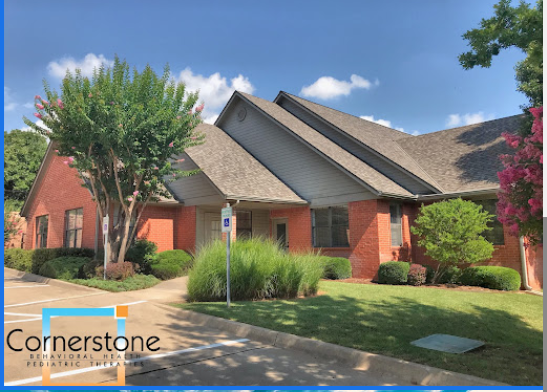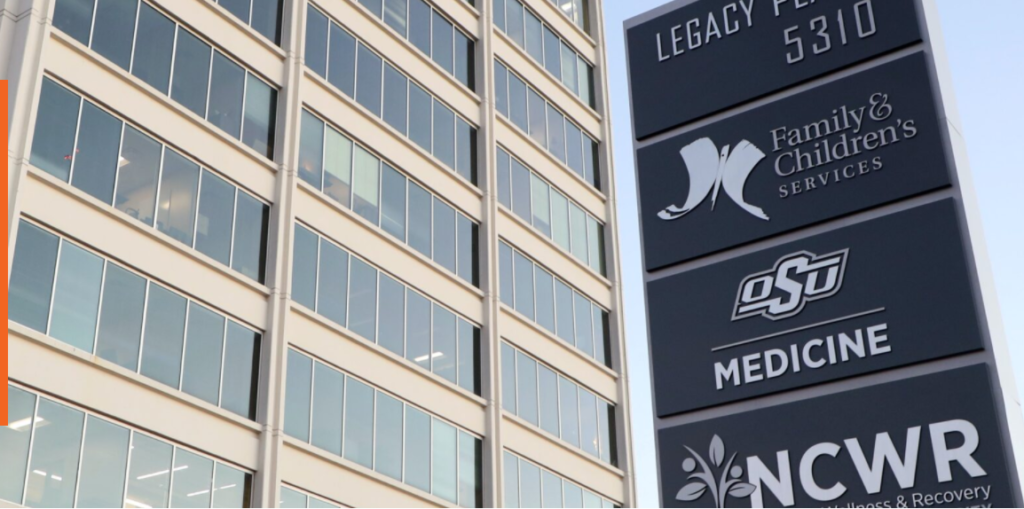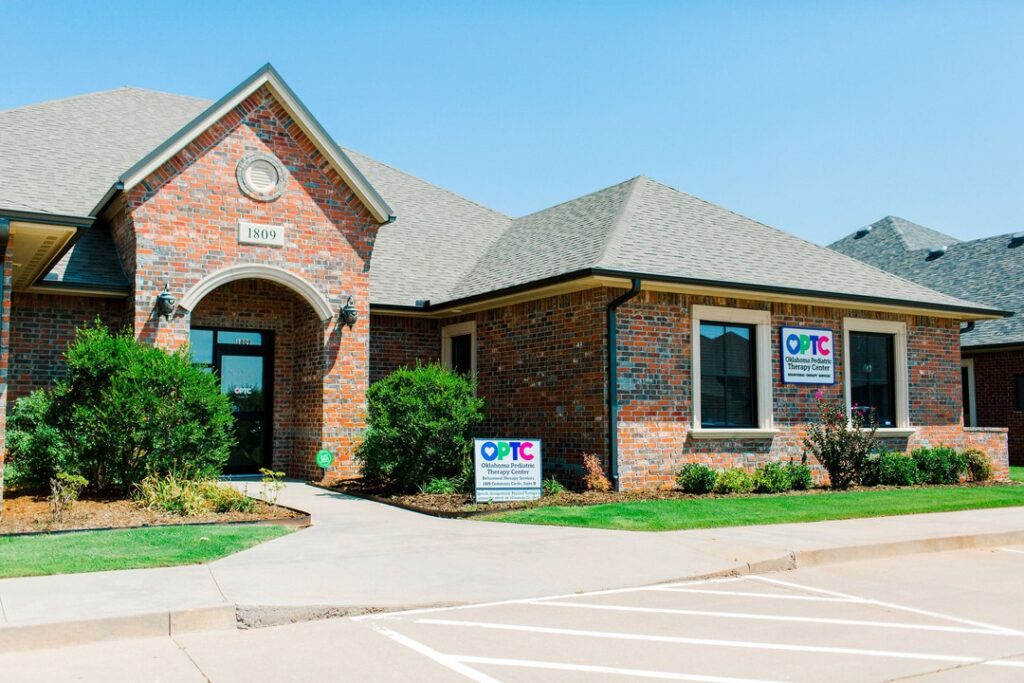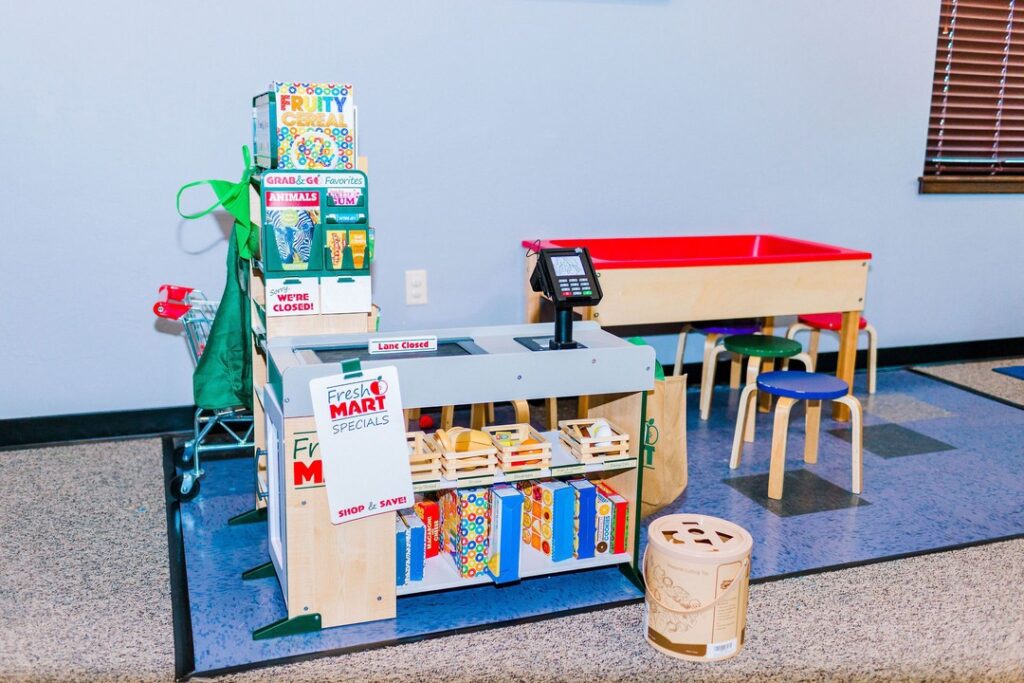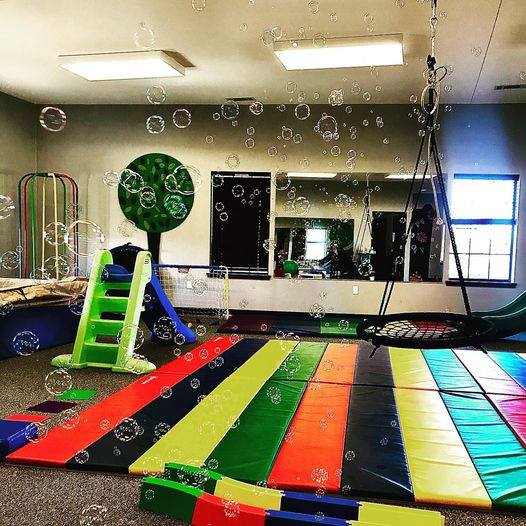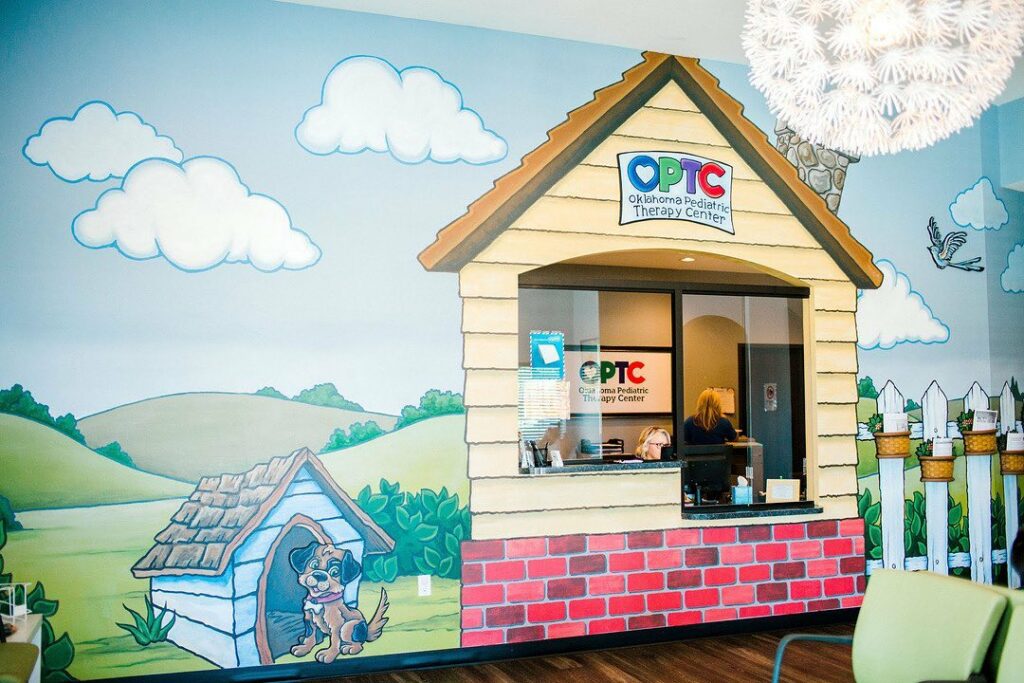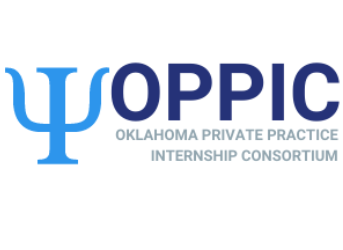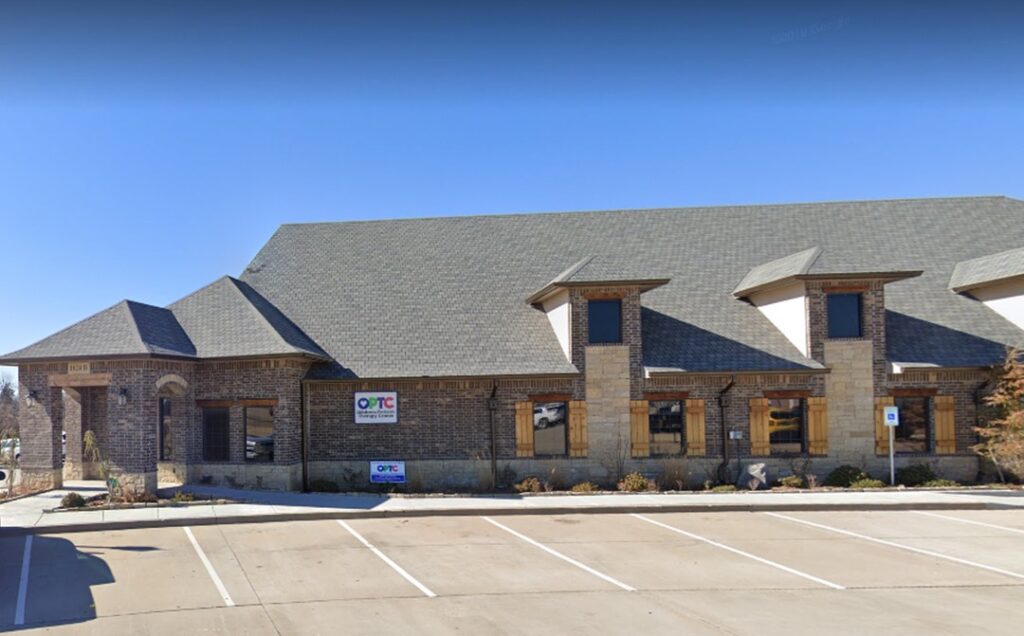
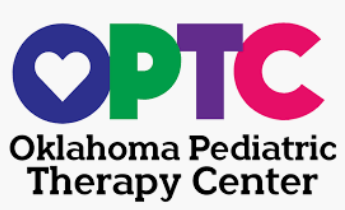
Oklahoma Pediatric Therapy Center (OPTC)
OPTC is a multidisciplinary pediatric therapy clinic with three locations in the OKC metro area: (1) Yukon; (2) Oklahoma City; and (3) El Reno. OPTC is a multidisciplinary facility that provides speech therapy, occupational therapy, physical therapy, behavioral therapy, and psychological assessments to children ages birth to 18 years of age. The OPTC Behavioral Department is comprised of three clinics: (1) Assessment Clinic; (2) Behavioral Therapy Clinic; and (3) Applied Behavior Analysis (ABA) Clinic. Interns matched to OPTC have the opportunity to work in multiple clinics, and clinic rotations are scheduled on an individual basis. The interests and professional goals of each intern are taken into consideration during the development of clinic rotation schedules.
OPTC Assessment Clinic: The Assessment Clinic provides comprehensive diagnostic assessments for children and adolescents suspected of having a neurodevelopmental disorder. Interns are responsible for conducting a thorough background interview, administering standardized assessments, scoring and analyzing assessment data, writing a comprehensive assessment report, and delivering feedback to caregivers. Interns conduct 1-2 assessments per week depending on intern training goals.
OPTC Behavioral Therapy Clinic: The Behavior Therapy Clinic provides individualized therapy to children and adolescents diagnosed with developmental disabilities and neurodevelopmental disorders. Interns conduct an intake evaluation using functional assessment procedures, identify 1-2 behaviors to target for initial treatment, and develop and train caregivers in intervention procedures. Interns then conduct follow up appointments to assess response to treatment interventions and target additional behavioral concerns. Behavioral therapy approaches are heavily grounded in behavioral methodology.
OPTC Training Experience: While individual training experiences may be tailored based upon the intern’s interests and training goals, an intern’s typical caseload will consist of approximately 5 individual therapy cases and two comprehensive diagnostic assessments per week. Interns are also required to attend weekly group supervision with fellow trainees and other professionals (e.g., licensed psychologists, practicum students, doctoral interns, and postdoctoral fellows). Interns will also participate in case consultation with fellow trainees and licensed staff. Interns are required to attend two annual all staff meetings (August and December). Interns are expected to obtain training in evidence-based practices and the ADOS which may include outside training experiences.
*OPTC is a Christian owned company and the mission of OPTC is ‘To Serve Christ By Providing Pediatric Therapy’. While both OPPIC and OPTC follow nondiscriminatory practices including the OPPIC NonDiscriminatory Policy, OPTC does have a heavy emphasis on Christian values in the workplace which may influence a prospective intern’s application and/or ranking decisions. Specifically, prayer or Christian principles may be incorporated into all staff meetings or annual Christmas celebrations. Supervisors may pray before or at the conclusion of a staff meeting or prayer requests may be shared amongst co-workers in staff communication. Additionally, Bible verses or references to Christ, God, or religion may be displayed on workspace walls or staff t-shirts.
*Please note, while OPTC is a Christian owned company, OPTC does not provide ‘Christian Counseling’ and all therapeutic techniques implemented are evidence based and scientific in nature (i.e. behaviorally based principles founded in science). Christianity may be discussed as part of supervision and how it informs case conceptualization, as many of the families who come to OPTC follow Christian religious practices, however, Christianity is not introduced into sessions or therapeutic techniques beyond the cultural family dynamics.
For more information about OPTC, please visit the OPTC website or social media accounts:
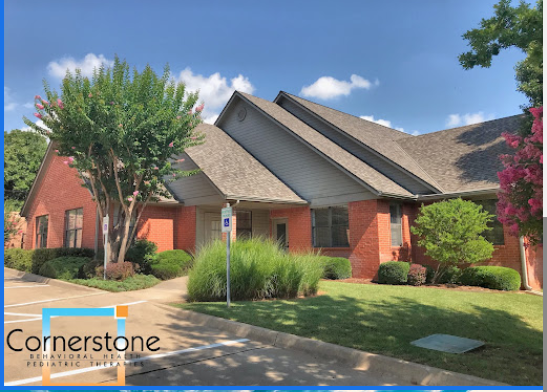

Cornerstone Behavioral Health and Pediatric Therapies (CSBH)
CSBH is a private, interdisciplinary clinic with three locations in the OKC metro area (1) Edmond, (2) NW OKC, and (3) Midwest City. CSBH provides speech and language therapy, occupational therapy, feeding therapy, social skills groups, and psychological assessment and intervention for children and adolescents ages 2-18 years. Interns have the opportunity to work alongside other disciplines for a more comprehensive training experience and have the ability to work with clients from urban, suburban, and rural Oklahoma. In addition, interns are provided with the unique experience of learning how to bill and be reimbursed from insurance companies within a private practice setting. Interns at CSBH have the option to work in two different rotations: Assessment or Behavior Therapy – or a combination of both.
CSBH Assessment Clinic: The Assessment Clinic provides psychological evaluations for children and adolescents examining concerns of autism spectrum disorder, ADHD, anxiety, depression, and other behavioral disorders. After the completion of the training phase, interns carry a caseload of 1-3 assessments per week and are responsible for the diagnostic interview, assessment, scoring of testing materials, comprehensive report writing, and feedback sessions with the caregiver(s).
CSBH Behavior Therapy Clinic: CSBH Behavioral Therapy Clinic: The Behavioral Therapy Clinic provides evidence-based individual and family therapy for children and adolescents. After the training period, the intern will be assigned 6-15 behavioral therapy patients. The number of patients will be adjusted based on the intern’s training goals. The intern will be responsible for conducting the intake appointment, identifying problem behaviors, providing mental health diagnoses, goal-setting, and treatment planning. They will also be responsible for conducting and scheduling follow-up appointments. The clinical orientation of behavioral therapists at CSBH is heavily rooted in ABA. As such, the following therapy modalities are most commonly provided, Cognitive Behavioral Therapy, Trauma Focused Cognitive Behavioral Therapy, Parent Management Training, Gradual Exposure Therapy, Exposure + Response Prevention, and Habit Reversal. In addition, interns may have the opportunity to gain additional training in Parent Child Interaction Therapy.
CSBH Training Experience: While individual training experiences may be tailored based upon the intern’s interests and training goals, an intern’s typical caseload will consist of either 10 individual therapy cases per week and two comprehensive diagnostic assessments per week OR three comprehensive diagnostic assessments per week. Interns are also required to attend weekly group supervision with fellow trainees and other professionals (i.e., licensed psychologists, practicum students, doctoral interns, and postdoctoral fellows) on site and participate in case consultation with fellow trainees and licensed staff. Interns are required to attend two annual all staff meetings (October and April). Additional training in the ADOS-2 is also required, and may involve outside training experiences.
For more information about CSBH, please visit the CSBH website or Facebook page:
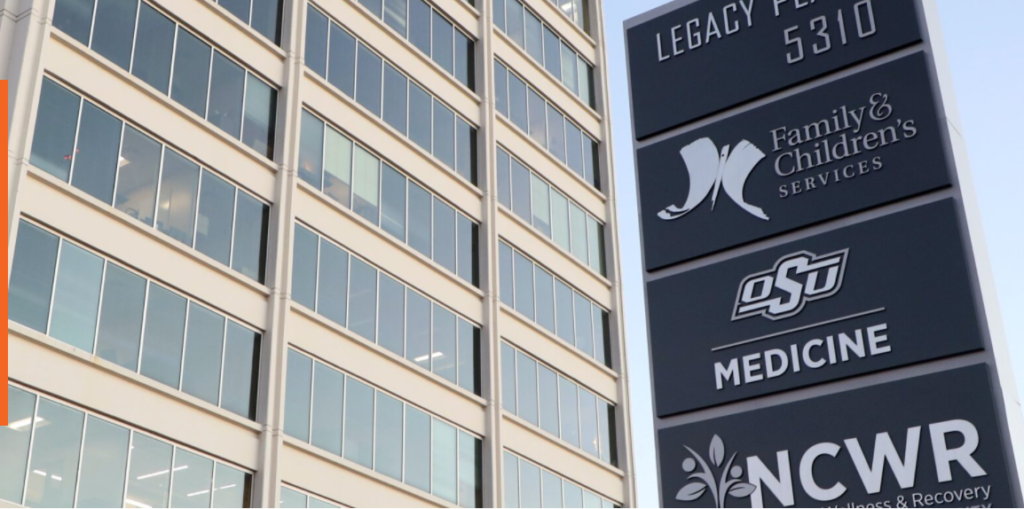

OSU-CHS Behavioral Medicine Clinic
The OSU Behavioral Medicine Clinic is a part of the Department of Psychiatry and Behavioral Sciences at the Oklahoma State University Center for Health Sciences (OSU-CHS), which is one of the nation’s largest osteopathic medical schools. The OSU Behavioral Medicine Clinic provides mental health services across the lifespan including psychiatric evaluations and medication management, neuropsychological and psychological assessments, and mental health therapy. Additionally, OSU-CHS has a strong outreach program through providing virtual and in person consultation services to rural physicians, case managers, and school districts. Interns at OSU-CHS specifically work in the Testing and Therapy Division.
Testing and Therapy Division: The Testing and Therapy Division, includes the practices of therapy, adult neuropsychology, and school psychology assessments. The internship is primarily associated with the school psychology service line and provides interns with an in-depth experience in the field of pediatric assessment and consultation. The assessment experience includes conducting initial interviews, case conceptualization for assessment planning, conducting comprehensive individualized assessments, and developing treatment recommendations based on the assessment results. Interns are expected to complete two to three comprehensive assessments per week. Additionally, there are opportunities for the interns to conduct therapy with children and adolescents with evidence-based interventions to support child mental health.
Additionally, depending on the intern area of interest, there are opportunities for consultation experiences with the school-based services at OSU. Interns will have the opportunity to collaborate with other mental health and educational professionals through participation in Project ECHO (Extension for Community Healthcare Outcomes), which is a virtual tele-mentoring program that uses a hub-and-spoke knowledge sharing approach where expert teams lead virtual clinics to deliver best practice care to underserved areas. Additionally, there are opportunities to provide school-based consultation on a tiered prevention framework through the OSU BRIDGE Center. The BRIDGE Center is a joint collaboration between the OSU Behavioral Medicine Clinic and the OSU School Psychology Training program, and has the mission to to provide educational institutions an integrated evidenced-based model for meeting the academic, behavioral, and mental health needs of students through interactive training, contextually appropriate technical assistance, and applied research.
For all services, interns will become familiar with the national and local special education standards, evidence-based learning, and behavioral interventions. Interns then utilize this knowledge to create science-based ecological intervention recommendations for clients and their families.
OSU-BMC Training Experience: While individual training experiences may be tailored based upon the intern’s interests and training goals, an intern’s typical caseload will consist of two comprehensive diagnostic assessments per week and 10-hours per week of school-based consultation services. Interns are also required to attend weekly individual and group supervision and participate in case consultation with fellow trainees and licensed staff. Interns are expected to obtain training in evidence-based practices including use of the ADOS-2, neuropsychological assessment batteries, and program level consultation.
For more information about the OSU Behavioral Medicine Clinic, please visit:
